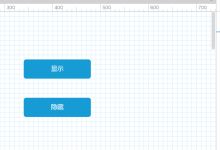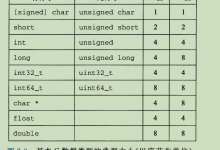对计算机的学生而言,许多开发工具是未来老师或企业默认你已经“精通”的,然而未经学校系统培训的我们或许会对此感到迷茫,正如 MIT 课程 The Missing Semester of Your CS Education 所强调的: “掌握基础工具是程序员的核心竞争力”。这个课程会帮助你入门、了解一些计算机常用的开发工具,也算是程序员的自我修养吧!Let’s Go!😄
相关课程在b站也有双语翻译(大部分应该都能听懂,就是有个好像是西班牙的老师带点口音听起来有点不适应😢)[自制双语字幕] 计算机教育缺失的一课(2020) – 第1讲 – 课程概览与 shell
Shell
当熟悉的可视化界面无法实现你想要的功能时,Shell将成为你与计算机交互的强大工具。相比图形界面有限的按钮和滑块,命令行提供了更灵活、更强大的控制方式,允许你通过文本命令和脚本实现自动化操作。本文基于VMware虚拟机中的Ubuntu 22.04发行版演示基础Shell操作:
richard@richard-VMware-Virtual-Platform:~$ date
Sat Jul 26 03:27:54 PM CST 2025
第一行通常是用户名、机器名称和当前所在路径
- Windows中路径通常使用反斜杠\\分隔,每个驱动器都有一个单独的路径结构。
- Linux / macOS 中这些路径使用正斜杠/分隔,他们挂载在同一个命名空间下。
开头的斜杠表示从文件系统的顶部开始。
- 相对路径:相对于当前位置的路径
- 绝对路径:完整路径,从顶部开始
richard@richard-VMware-Virtual-Platform:~$ echo "Hello World"
Hello World
echo可以将后面的参数打印在屏幕上
richard@richard-VMware-Virtual-Platform:~$ which echo
/usr/bin/echo
which可以用于寻找后面参数文件的绝对位置
richard@richard-VMware-Virtual-Platform:~$ pwd
/home/richard
pwd(Print Working Directory)打印当前所在路径
richard@richard-VMware-Virtual-Platform:~$ cd /home
richard@richard-VMware-Virtual-Platform:/home$
cd(Change Directory)表示更改当前目录
这是更方便切换目录的方式:
- .表示当前目录
- ..表示父目录
注意:使用相对路径能提高命令在不同电脑上的兼容性!
richard@richard-VMware-Virtual-Platform:/$ ls
bin home mnt sbin.usr-is-merged usr
bin.usr-is-merged lib opt snap var
boot lib64 proc srv
cdrom lib.usr-is-merged root swap.img
dev lost+found run sys
etc media sbin tmp
ls会列出当前目中的文件,这能够快速浏览文件
richard@richard-VMware-Virtual-Platform:/home$ cd ~
richard@richard-VMware-Virtual-Platform:~$
- cd ~能够快速回到用户主目录
- cd -切换到上一个工作目录
richard@richard-VMware-Virtual-Platform:~$ ls –help
Usage: ls [OPTION]... [FILE]...
List information about the FILEs (the current directory by default).
Sort entries alphabetically if none of -cftuvSUX nor –sort is specified.
–help参数显示命令帮助信息
richard@richard-VMware-Virtual-Platform:~$ ls -l
total 40
drwxr-xr-x 2 richard richard 4096 Mar 9 10:21 Desktop
drwxr-xr-x 2 richard richard 4096 Mar 9 10:21 Documents
lrwxrwxrwx 1 root root 7 Apr 22 2024 bin –> usr/bin
drwxr-xr-x 2 root root 4096 Feb 26 2024 bin.usr-is-merged
# 仅列举部分进行展示说明
文件类型(第1个字符)
| d | 目录 | 文件夹 | drwxr-xr-x |
| – | 普通文件 | 文本/二进制文件 | -rw-r–r– |
| l | 符号链接 | 软链接文件 | lrwxrwxrwx |
| c | 字符设备 | 终端等串行设备 | crw–w—- |
| b | 块设备 | 磁盘等存储设备 | brw-rw—- |
| s | 套接字 | 进程通信文件 | srwxrwxrwx |
| p | 管道 | FIFO 管道文件 | prw——- |
用户权限分为 3组(每组3字符),分别对应:
| 所有者权限 | rwx |
| 所属组权限 | r-x |
| 其他用户 | r-x |
权限字符含义:
| r | 读 | 查看文件内容 | 列出目录内容(ls) |
| w | 写 | 修改/删除文件 | 创建/删除目录内文件 |
| x | 执行 | 运行程序/脚本 | 进入目录(cd) |
| – | 无 | 无权限 | 无权限 |
注意:
mv能将文件修改位置并重命名 cp复制文件 需要两个参数 一个是要复制的文件路径 一个目标文件路径 rm用于删除文件 rmdir能删除一个目录 但它只能删除空目录 防止不小心删除一大堆文件 mkdir创建目录
mkdir My Photos
mkdir创建目录
mkdir "My Photos"
这里如果不加上上引号则会创建两个目录 man+指令 查找手册 ctrl+l清空窗口
输入流和输出流
richard@richard-VMware-Virtual-Platform:~$ echo hello > hello.txt
>覆盖输出到文件 <从文件读取输入
richard@richard-VMware-Virtual-Platform:~$ cat hello.txt
hello
通过cat指令输出文件内容
richard@richard-VMware-Virtual-Platform:~$ cat <hello.txt>hello2.txt
richard@richard-VMware-Virtual-Platform:~$ cat hello2.txt
hello
<将hello.txt作为输入内容并通过>将cat打印的任何内容输出到hello2.txt文件中
richard@richard-VMware-Virtual-Platform:~$ cat <hello.txt>>hello2.txt
richard@richard-VMware-Virtual-Platform:~$ cat hello2.txt
hello
hello
>>表示追加而不是覆盖(append instead of overwrite)
richard@richard-VMware-Virtual-Platform:~$ ls -l|tail -n1
drwxrwxr-x 3 richard richard 4096 Mar 9 12:26 web
管道运算符|作用是将左侧命令的输出作为右侧命令的输入:可以连接多个命令形成处理流水线
tail将输出最后一行的内容
用户权限管理
root相当于Windows的管理员权限,是一位超级用户,可以做任何想做的事情,倘若一直使用root用户操作计算机,如果运行了错误的程序,那会彻底毁坏你的电脑!
richard@richard-VMware-Virtual-Platform:/sys/class/backlight$ sudo su
[sudo] password for richard:
root@richard-VMware-Virtual-Platform:/sys/class/backlight#
通过sudo su来进入root身份,同时提示符由$变为#
root@richard-VMware-Virtual-Platform:/sys/class/backlight# exit
exit
richard@richard-VMware-Virtual-Platform:/sys/class/backlight$
exit来退出用户权限
richard@richard-VMware-Virtual-Platform:~$ xdg-open hello.txt
这样就可以直接在terminal打开文件!
richard@richard-VMware-Virtual-Platform:~$ foo=bar
richard@richard-VMware-Virtual-Platform:~$ echo $foo
bar
在shell中,$符号是一个特殊字符,主要用于变量展开。当你在变量名前面加上$时,shell会将其替换为该变量的值!
- foo 会被Shell视为普通字符串
- $foo 告诉Shell这是一个需要展开的变量
ichard@richard-VMware-Virtual-Platform:~$ echo "Hello"
Hello
richard@richard-VMware-Virtual-Platform:~$ foo=World
richard@richard-VMware-Virtual-Platform:~$ echo "Hello foo"
Hello foo
richard@richard-VMware-Virtual-Platform:~$ echo "Hello $foo"
Hello World
在shell中我们一定要非常注意空格space的使用,它是用作不同参数间的分隔符,倘若多打一个可能就会出现报错!
richard@richard-VMware-Virtual-Platform:~$ false
richard@richard-VMware-Virtual-Platform:~$ echo $?
1
richard@richard-VMware-Virtual-Platform:~$ true
richard@richard-VMware-Virtual-Platform:~$ echo $?
0
$? 是一个特殊变量,存储上一个命令的退出状态码
- false 是一个 Shell 内置命令,返回非零退出状态(失败)设置退出状态码为 1(表示失败)
- true 也是一个 Shell 内置命令,返回零退出状态(成功)退出状态码被设为 0(表示成功)
这里看上去有点反常理,我们学的其他编程语言中0是false,非零是true,为什么这里反过来了? 当我们想到c、c++中main函数结束的返回值或许就不奇怪了!main() 函数默认返回0 表示成功,非零表示错误(如 return 1;)。
再考虑到程序运行只有两种可能:
- 0 = 没有错误(成功)
- 1 = 通用错误
- 2 = 参数错误
- 3 = 文件不存在
richard@richard-VMware-Virtual-Platform:~$ false || echo "Oops fail"
Oops fail
richard@richard-VMware-Virtual-Platform:~$ true || echo "Will be not be printed"
richard@richard-VMware-Virtual-Platform:~$
shell中||同样遵循短路原则,&&同理!
richard@richard-VMware-Virtual-Platform:~$ echo "We are now at $(pwd)"
We are now at /home/richard
shell中使用$(command)进行命令替换
richard@richard-VMware-Virtual-Platform:~$ ls
Desktop Downloads hello.txt Pictures snap Videos
Documents hello2.txt Music Public Templates web
richard@richard-VMware-Virtual-Platform:~$ ls *.txt
hello2.txt hello.txt
*是一个通配符(globbing):表示匹配任意数量的任意字符(包括零个字符)。Shell会在执行ls 前先展开 *.txt,将其替换为所有匹配的文件名,相当于寻找所有后缀为.txt的文件!
richard@richard-VMware-Virtual-Platform:~$ ls hello?.txt
hello2.txt
richard@richard-VMware-Virtual-Platform:~$ ls hello*.txt
hello2.txt hello.txt
这里可以看到?也是通配符,表示匹配任意一个字符(区别是必须存在,不能匹配空字符)
#!/usr/bin/env python3 #自动查找python3
通过Shell调用Python脚本可以充分发挥两者的优势:Shell的流程控制能力结合Python的丰富库函数,但我们要在路径中找到并配置好python解释器。
import sys
由于shell默认不会执行python指令,我们需要添加库函数,来让python接受shell传递的参数
richard@richard-VMware-Virtual-Platform:~$ history
我们可以使用⬆️来一个个浏览历史记录命令,我们也可以使用history直接打印所有历史命令!
richard@richard-VMware-Virtual-Platform:~$ history | grep git
我们通过history +N | grep +指令来查找所有与指令字符串相匹配的N条历史记录命令!
tree
能列出目录结构性的位置!
 网硕互联帮助中心
网硕互联帮助中心





评论前必须登录!
注册